#in honour of midwinter
Explore tagged Tumblr posts
Text
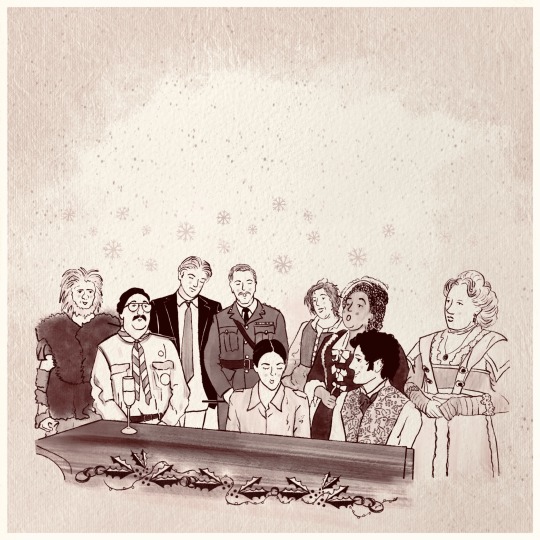
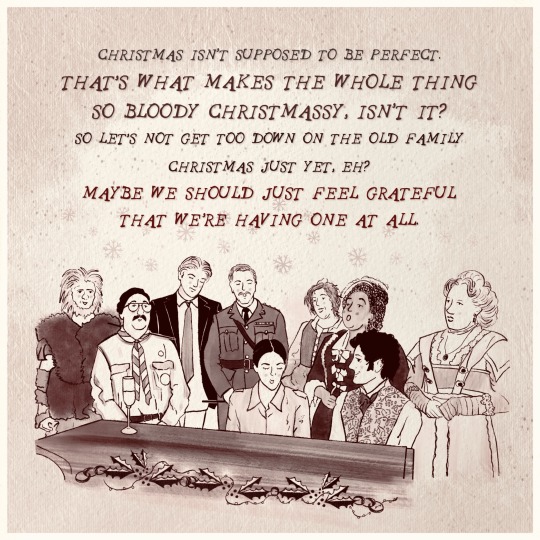
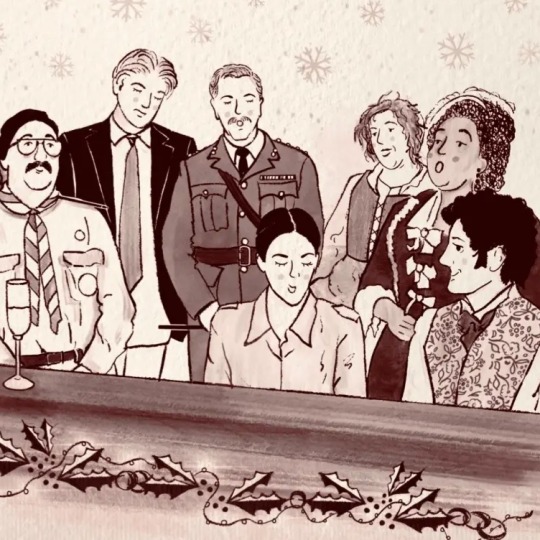
Ghosts prints available here
"In the bleak midwinter
Frosty wind made moan
Earth stood hard as iron
Water like a stone
Snow had fallen
Snow on snow on snow
In the bleak midwinter
Long, long ago"
I really wanted to post a Christmas illustration so here's my favourite scene from the entirety of BBC Ghosts in honour of its last ever episode today!
It makes me cry so much every time I watch it and it sums up Christmas so perfectly ❤️
#bbc ghosts#bbc ghosts the captain#bbc ghosts robin#bbc ghosts julian#bbc ghosts fanny#bbc ghosts fanart#fanart#button house#bbc ghosts alison#bbc ghosts christmas special
722 notes
·
View notes
Text
Every Pagan Holiday
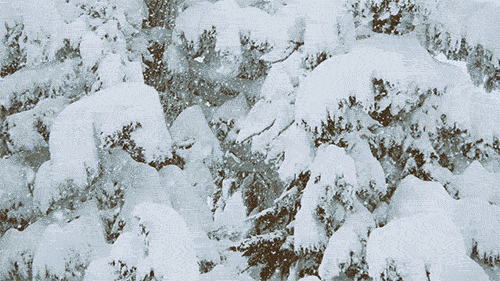
JANUARY
KALENDS
1st January
Origins: Ancient Greece/Rome
Observed by: Hellenic/Roman polytheists
Honouring Janus/Juno, first day of the Year. Kalends brought us the word 'calendar'.
ÞORRABLÓT (THORRABLÓT)
End of January/beginning of February
Origins: Iceland
Observed by: Heathens, Asatru
Midwinter Festival honouring Thor, usually by feasting and poetry.

FEBRUARY
IMBOLC
2nd February
Origins: Celtic polytheism /Ireland, as St. Brigid's Day
Observed by: Most neopagans, Wiccans, Druids, Asatru (as Charming of the Plow)
Imbolc is the most widely known and observed pagan holiday in the months of January and February. It falls at the beginning of spring/end of the winter for the Celtic peoples; marking the changing of the seasons, as most holidays do. St. Brigid is a Christianised form of or inspired by the Celtic fertility goddess Brigid who is celebrated on this day.
PARENTALIA
13th-21st February
Origins: Ancient Rome
Observed by: Greco-Roman polytheists
Translating to 'Ancestors Day', Parentalia is a nine-day celebration of deceased ancestors. Historically it was observed by feasting and making offerings and sacrifices to the dead and spirits of the underworld.
VÁLI'S BLOT
14th February
Origins: Old Norse
Observed by: Heathens, Asatru, Norse polytheists
Váli's Blot is considered by some Asatru to be the Norse equivalent of Valentine's Day but is widely acknowledged as a season changing festival. A day for marriage and celebrating with family and friends, and for remembrance of Váli, the son of Odin who defeated Höðr on this day.
LUPERCALIA
15th February
Origins: Ancient Rome
Observed by: Greco-Roman polytheists
Festival thought to honour a wolf who raised abandoned princes, celebrated originally by sacrificing goats to the gods, feasting, and, for fertility, nudity and fornication.
LESSER ELEUSINIAN MYSTERIES
17th-23rd February
Origins: Ancient Greece
Observed by: Hellenic polytheists
Initiation to the cult of Persephone and Demeter by sacrificing a pig. Prelude to Greater Mysteries, initiations held on these dates. Once completed, initiates could then move onto Greater Mysteries in the autumn.
ANTHESTERIA
27th February - 1st March 2021
Origins: Ancient Greece
Observed by: Hellenic polytheists
Athenian festivals dedicated to Dionysus and the dead. Held around the full moon in the month of Anthesterion, which in the Gregorian calendar this year roughly translates to 27th February.
THE DISTING/DÍSABLÓT
End of February/beginning of March
Origins: Uppsala, Sweden
Observed by: Heathens, Asatru, Norse polytheists
Celebration of Valkyries and other female spirits, called dísir. Sacrifices were made for a good harvest. Celebrated still by an annual market in Sweden.
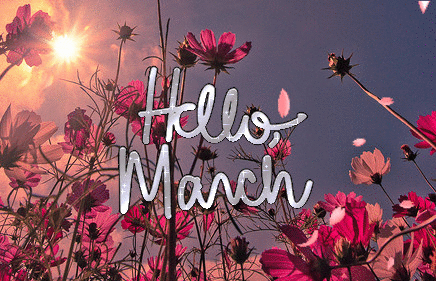
MARCH
KALENDS
1st March
Origins: Ancient Greece/Rome
Observed by: Hellenic/Roman polytheists
Honouring the god Mars/Ares. Kalends brought us the word 'calendar'.
OSTARA/EARRACH
20th March
Origins: Anglo Saxon paganism, popularised as Ostara by Wicca
Observed by: Anglo Saxon Pagans, Wiccans, Neopagans, Druids (as Alba Eilir), Heathens (as Summer Finding), Ásatrú (as Sigrblót)
The northern hemisphere's vernal equinox, the word Ostara was introduced though Wicca and named for the goddess Eostre. Surprisingly unrelated to Easter in all but name, Ostara symbolises the beginning of spring. As a seasonal holiday it is widely celebrated by many different groups of pagans.
RAGNAR LODBROK'S DAY
28th March
Origins: Icelandic Sagas
Observed by: Ásatrú
Day of remembrance for Ragnar Lodbrok, Viking King of legend

APRIL
KALENDS/VENERALIA
1st April
Origins: Ancient Greece/Rome
Observed by: Hellenic/Roman polytheists
Celebration of the first of the month, this one honouring the goddess, Venus.
REMEMBRANCE FOR HAAKON SIGURDSSON
9th April
Origins: Norway, C9th
Observed by: Ásatrú
Day of remembrance for ruler of Norway who claimed lineage to Odin in the Icelandic Sagas.
WALPURGISNACHT
30th April
Origins: German Christianity, originally Saint Walpurga was known for banishing witches and other pests
Observed by: LaVeyan Satanists
Anton LaVey chose to celebrate this holiday as a follow up to the spring equinox and due to its past association with witchcraft.
HEXENNACHT (WITCHES' NIGHT)
30th April
Origins: German folklore, as Walpurgisnacht but witches were alleged to convene with the devil in this night
Observed by: Temple of Satan as 'a solemn holiday to honour those who were victimized by superstition'.
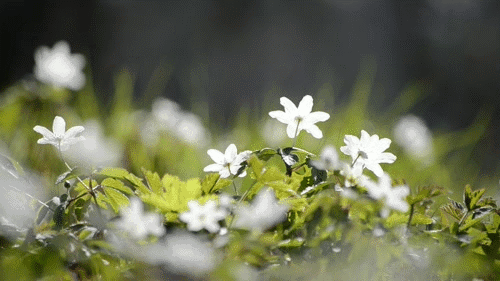
MAY
BEALTAINE/BELTANE
1st May
Origins: Celtic (Ireland/Scotland/Isle of Man)
Observed by: Wiccans, Neopagans, Celtic reconstructionist, Ásatrú/Heathens (as May Day)
One of the more well-known pagan festivals, Beltane is a festival of fire and the beginning of the summer. Also widely referred to as May Day, it is celebrated by lighting fires.
KALENDS
1st May
Origins: Ancient Greece/Rome
Observed by: Hellenic/Roman polytheists
Honouring the goddess Maia, for whom the month may have been named.
REMEMBRANCE FOR Guðröðr of Guðbrandsdál
9th May
Origins: C11 Norway, Icelandic Sagas
Observed by: Ásatrú, Norse, heathens
Guðröðr had his tongue removed by Óláfr for rebelling against violent conversion from Norse paganism to Christianity.

JUNE
KALENDS
1st June
Origins: Ancient Greece/Rome
Observed by: Hellenic/Roman polytheists
Anniversary of temples to Juno Moneta (protectress of money, her temple was where coins were made), Mars/Ares (God of war), and the Tempestates (goddesses of storms).
ARRHEPHORIA
3rd Skirophorion (translates to mid-June)
Origins: Ancient Greece
Observed by: Hellenic reconstructionist
Feast in celebration of Athena and fertility.
MIDSUMMER/SUMMER SOLSTICE
21st June
Origins: Agricultural holiday/longest day observed for centuries by many civilisations. Christianity can date to as early as C4th
Observed by: Wiccans/Germanic neopagans (as Litha), Asatru/Heathens, Druids (as Alban Hefin)
One of the main four holidays in the Wheel of the Year and popularised by Wiccans and neopagans as Litha which is taken from the Anglo-Saxon words for June/July, this is the longest day of the year and the middle point and sometimes considered the beginning of summer.

JULY
REMEMBRANCE FOR UNNR/AUD THE DEEP MINDED
9th July
Origins: C9th Iceland
Observed by: Ásatrú, Heathens, Norse reconstructionist
Aud was a traveller in the 9th century moving between Dublin, the Hebrides, Orkney, and finally Iceland following the deaths of her husband and son. This day is to honour her memory.
HERACLEIA
July/August
Origins: Ancient Greece
Observed by: Hellenic polytheists
Festival dedicated to Heracles the demigod and his death, involving feasting and celebration.

AUGUST
LUGHNASADH/LAMMAS
1st August
Origins: Celtic Britain (Ireland, Scotland, Isle of Man)
Observed by: Wiccans, Neopagans, Christians (as Lammas), Ásatrú (as Freyfaxi)
Named for the god Lugh, this festival is one of the Celtic harvest festivals and marks the beginning of the harvesting months. It was celebrated by climbing mountains, bull sacrifice, offerings, and feasting. Handfasting is commonplace with Wiccans in modern times.
REMEMBRANCE FOR REDBAD, KING OF THE FRISIANS
9th August
Origins: C7th Frisia (area of Germany/Netherlands)
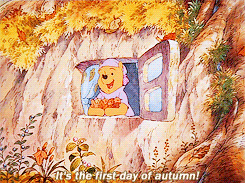
SEPTEMBER
NOUMENIA
8th September
Origins: Ancient Greece
Observed by: Hellenic polytheists
Celebration of new Hellenic lunar month. Offerings of honey and incense made to household deities.
REMEMBRANCE FOR HERMANN THE CHERUSCAN
9th September
Origins: C9th CE
Observed by: Heathens, Ásatrú
Hermann the Cheruscan, also known as Arminius of the Cherusci tribe, led the defeat against the Romans at the Battle of Teutoburg Forest and is lauded for saving Eastern Germanic peoples from being conquered by the Roman Empire.
AUTUMN EQUINOX (NORTHERN HEMISPHERE)
22nd September
Origins: 1970s neopaganism
Observed by: Wiccans and Neopagans (as Mabon), Ásatrú (as Winter Finding)
Named Mabon by prominent Wicca and Neopagan Aidan Kelly, after the Welsh mythological figure Mabon ap Moldron, the autumn equinox is one of the harvest festivals and marks the beginning of autumn in the northern hemisphere. Mabon is a relatively new pagan holiday not based on any specific historical festival, but traditionally people around the world would celebrate some kind of harvest festival around the end of September/beginning of October.
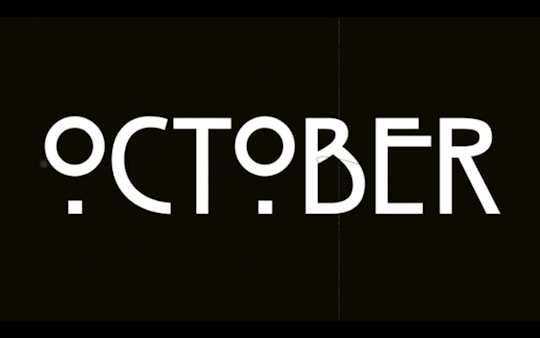
OCTOBER
PYANOPSIA
7th October
Origins: Ancient Greece
Observed by: Hellenic polytheists
Pyanopsia, or Pyanepsia, is a festival to honour Apollo, one of the most important deities, God of music, the sun, knowledge, healing, and archery - amongst other things. During the festival, two special offerings would be placed on doorways and carried to the temple. These offerings were a bean stew, and an olive branch wrapped in wool with honeys, pastries and seasonal fruits hanging from it.
REMEMBRANCE FOR LEIF EIRIKSSON
9th October
Origins: C10th CE
Observed by: Heathens, Ásatrú, Norse pagans
Remembrance for Leif and his sister Freydís Eiríksdóttir, children of Erik the Red, who are cited with being the first Norse explorers in North America.
THESMOPHORIA
12th-14th October
Origins: Ancient Greece
Observed by: Hellenic polytheists
Festival held in honour of Demeter Thesmophoros, goddess of agriculture, and her daughter Persephone, goddess of death and life, Queen of the Underworld. Celebrated primarily by women, this festival is linked with fertility, and we know very little about it due to its secretive rites. It is thought that it involved the sacrifice of pigs (although some sources say women), and abstinence.
REMEMBRANCE FOR ERIK THE RED
28th October
Origins: C9th CE
Observed by: Heathens, Ásatrú, Norse pagans
Erik the Red, probably named for the colour of his hair and beard, was the first permanent European settler in Greenland. His children were explorers too, who went to America, and although his wife converted to Christianity, Erik remained faithful to his Norse pagan gods.
SAMHAIN (HALLOWE'EN)
31st October-1st November
Origins: Gaelic - Scotland, Ireland, Isle of Man
Observed by: Celtic pagans, Neopagans, Wiccans
Pronounced SOW-in (sow rhyming with cow), Samhain was originally a harvest festival marking the beginning of winter. The day itself is the 1st November, but celebrations begin on October 31st, and this has become the accepted associated day. It's a festival of the dead, where the síthe, fae and spirits, can enter this realm from their own. Wiccans talk of a 'veil' thinning, meaning the boundary between worlds. Similar death related festivals around this time can be noted in other faiths from across the globe, and of course in the modern Hallowe'en.
WINTER NIGHTS (VETRNAETR), ÁLFABLÓT/DÍSABLÓT
31st October
Origins:
Celebrated by: Heathens, Ásatrú, Norse pagans
Winter Nights is mentioned in the Ynglinga Saga as one of the three greatest blessings of the year, the other two being Sigrblót in April, and þorrablót in late Jan/early Feb. Winter Nights is the celebration of the beginning of the winter season; Álfablót is a sacrifice to the elves, and Dísablót a sacrifice to the female spirits (dísir) and Valkyries.
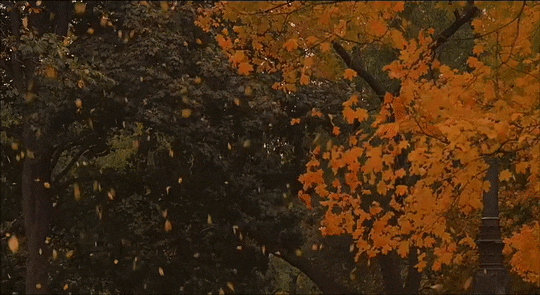
NOVEMBER
REMEMBRANCE FOR SIGRID THE HAUGHTY
9th November
Origins: C9th CE
Observed by: Heathens, Ásatrú, Norse pagans
It is not actually known whether Sigrid Storråda, or Sigrid the Haughty, was an actual historical figure, an amalgamation of a few, or simply a myth. The lore goes that she was proposed to multiple times and turned down many but went on to orchestrate conflict when a potential suitor - Olaf Tryggvason, King of Norway - attempted to convert her to Christianity.
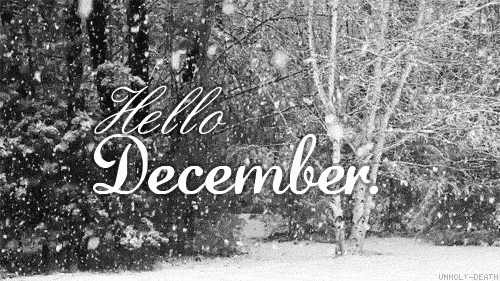
DECEMBER
REMEMBRANCE FOR EGILL SKALLAGRÍMSSON
9th December
Origins: C10th CE
Observed by: Heathens, Ásatrú, Norse pagans
Day celebrating the poet, farmer, and berserker Egill Skallagrímsson, who is recalled in The Icelandic Sagas by Snorri Sturluson. Egill is known for his many killings and escaping death by writing an epic poem after being captured when washing up on our Northumberland coastline.
SATURNALIA
17th - 23rd December
Origins: Ancient Rome
Observed by: Roman polytheists, some Hellenic
Like Yule and Lesser Dionysia, Saturnalia was the Roman winter festival celebrating the coming return of the sun and honouring the god Saturn. The standard feasting and drinking feature, and slaves would be treated as equals like Dionysia. Saturnalia is another festival cited as being picked up by Christians and used as inspiration for Christmas.
WINTER SOLSTICE (YULE/MIDWINTER)
21st December
Origins: Germanic nations, as early as C4th CE
Observed by: Norse pagans, Wiccans, Neopagans, LaVeyan Satanists, Ásatrú, Heathens, many Germanic nonpagan peoples
Yule is the midwinter festival known commonly among pagans as a time for feasting, being with loved ones, remembering ancestors, and looking forward to the return of the light and warmer days. Many pagans will celebrate Yule for more than one day, some celebrating a week either side, some for longer, up to two months, and some for twelve days afterwards. True Yule would have originally been in January for midwinter, but King Haakon the Good
moved it to coincide with the Christian celebrations in the 10th century, as told in the Ynglinga Saga.
On the 24th of December, Anglo Saxons are said to have celebrated 'Mothers Night' honouring female ancestors.
RURAL/LESSER DIONYSIA
End of December/beginning of January
Origins: Ancient Greece
Observed by: Hellenic polytheists
Smaller festival honouring the god Dionysus (Greater Dionysia took place in cities at the end of winter). Feasting, mask wearing to stop distinction between classes so that everyone could feel equal, sacrifices, parades, and phallic display were all used to celebrate.
#wheel of the year#wiccan#pagan#heathen#greek#mythology#holidays#religious holidays#pagan holidays#non-Abrahamic holidays#witch#witchcraft#witchblr#pagan wicca#polytheism#paganism#witches#witch holidays#witches holidays#pagan witch
283 notes
·
View notes
Text
IT'S TIIIIIIIIIME!!!
...For me to do my lil randomly occuring hc yap sesh! today we have
Headcanons/Theories I came up with in the shower (BSD)
has anyone ever noticed how the characters trauma is linked to their ability in some way? or yt heir person, idk how to explain, but i'll use a few examples
either its their ability, or another work by their irl author counterparts
tachihara's ability, midwinter memento
midwinter, the coldest (theoretically) time of the year
emptiness can also feel cold
'memento' meaning souvenir, or a reminder
both of which could be about his brother
whom he has a similar ability to
this 'souvenir' could be a trait (their ability) or his brother's dog tag
when his brother died, tachihara became empty, and you can't compete with a dead person
So he tried being different to his brother to avoid comparison
fukuchi's ability mirror lion
'lion' representing a leader. a commander with bravery and honour
however a mirror is only made of 'glass' (and metal, but also, who cares?)
the reflection shown is but a sorry illusion that you can't change
no matter how hard you distort the picture, it's still your tainted hands
chuuya being the tainted sorrow in his irl counterpart's poem (havent read it yet though, so its taken from the title)
chuuya, no matter how often he tries, will always be a second choice
'tainted sorrow' for distraught. in despair to the point which you can't stand
numbness to pain you forgot existed
chuuya's ability is like a letter to the self
he IS the tainted sorrow
he IS the second choice
(btw, i have not yet read stormbringer and i havent been able to read the manga yet, so this is what i have gathered from the anime, WHICH I HAVE REWATCHED FOUR COMPLETE TIMES, DO NOT PLAY WITH ME ON THIS, I WILL FUCJING PROVIDE EVIDENCE.)
but this is my observations with the people he is shown to be "closest" with in the pm
ie dazai kouyou aku and mori
not including sb character (obvi)
dont spoil me either im alr so sicj of getting dpoilef its sad
tangent; no one sees my vision when i say that skk want to 'kill each other' just not in the way youd expect like beast!chuuya (manga at least) says he wants dazai to die by his hands (and from what i've heard frin the ln goes cuckoo snd seeks to destroy the agency)
yet again i have bit read any lns, im too poor
ANYWAY the others have "diff priorities" ygwim??
dazai has oda/atsushi ygwim?
but he does think of chuu bet
kouyou kyouka
mori dazai
aku jinko
but hes loyal snd i loev him
idk i just yap ive forgotten this thought ngl
jouno and his priceless tears man
i would explain more on this but the only tears there are were the tears that fell from my eyes.
might do a pt 2 of this idc lol
might get cancelled for my opinion and view of bsd too but idc its fiction i can analyse it how i want its nit the bible
#bungo stray dogs#bsd#bungou stray dogs#bsd chuuya#bsd headcanons#chuuya nakahara#bsd anime#bsd tachihara#bsd fukuchi#bsd shitpost#bsd jouno#bungo stray dogs tachihara#tachihara michizou#fukuchi ouchi#ōchi fukuchi#fukuchi genichirou#jouno saigiku#bungou stray dogs jouno
23 notes
·
View notes
Text
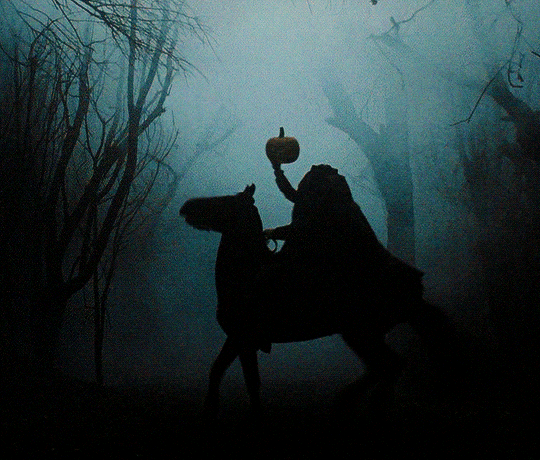
Origins of the Headless Horseman legend
Despite the legend of Sleepy Hollow being one of the oldest American written horror stories, the origin behind the Headless Horseman is a lot older and originates in Europe.
Washington Irving first published the legend of Sleepy Hollow between 1819-1820. In this story, it is explained that the Headless Horseman was a German mercenary soldier, a Hessian hailing from the German state Hessen, who unfortunately lost his head during the revolutionary war after being hit by a canon ball to the face. It is interesting that Irving chose for a German origin for the Horseman in a Dutch town as both Germany and the Netherlands have legends of headless horsemen, talking decapitated heads, ghost riders in the dark that have its origins in pre-Christian times.
Here are some examples of the headless horseman myth from different countries in Europe:
Netherlands: The belief in the wild hunt was once quite important in pre-Christian times, it's in fact the origin of the modern Dutch holiday of Sinterklaas which was introduced in the USA as Santa Clause. As the days shorten and winter arrives, the Germanic God Wodan, or in some instances the Goddess Hel/Holle, rides through the sky followed by a horde of the undead. Anyone unfortunate enough to see the riders in the sky, would soon die and join the hunt. To please the hunt, people began to give offerings to the God Wodan and his horse Sleipnir, placing carrots in shoes, this tradition is still being done in the Netherlands until this very day. I am myself a Germanic Pagan and I honour the wild hunt by making offerings to Wodan and his horse and blowing the midwinter horn.
There is also a Dutch medieval song 'Heer Halewijn', the origins of which are assumed to be older, an oral tradition before being written down around the 15th century. This song tells the tale of a princess set out to meet Halewijn who in turn ends up being a murderer who decapitates women in the forest. The princess manages to decapitate Halewijn instead and takes his head with her to her father the king, Halewijn's decapitated head however continues to talk to the princess.
Ireland: In Irish folklore, the Dullahan is a headless evil entity who rides a horse while carrying his head under his arm. This spectre is perhaps the most famous and classic example of the visual origin of the Headless Horseman. Not only does the Dullahan carry his own head, he also wields a whip made out of a human spine. Whenever the Dullahan halts his horse, a death will happen by calling out that person's name. Some say that the Dullahan is the spirit of Crom Dubh, a Celtic deity who was worshiped by means of human sacrifices.
There is also the Cóiste Bodhar, a strange headless entity who drives a black coach. Bodhar is a harbinger of death who arrives to announce the passing of a relative or a loved one, quite similar to the grim reaper.
Wales: Now the country of Wales is home to quite a few headless mysteries. One of the more famous stories tells about a headless woman: 'Fenyw heb un pen' who eerily also rides a horse without a head. Another story tells of how Bryn Hall was haunted by a headless horseman until the horseman pointed towards a body which turned out to be the dead body of an illegimate child of Bryn Hall. This version of the Headless Horseman seems to have been more benign, rather than being a harbinger of death or a crazed killer.
Germany: Germany is also home to several Headless Horseman legends and is of course the home country of Irving's version of the Headless Horseman. Most of Germany's legends originate from the Rhineland area and were part of a morality tale. Many of these Headless Horsemen were doomed men, being punished for their sins on earth so they had to wander until they had atoned for their sins. Sometimes these Headless men would perform good deeds, most times however they would kill victims, not by decapitation but simply by touching them. Both Germany and the Netherlands believed in the Wild Hunt legend and it is alleged that many of these Headless Horsemen have their origin in the pagan wild hunt.
England: England also has several legends concerning Headless Horsemen, one of these is part of the legend of Arthur, the Green Knight. This knight challenged one man in Arthur's court to strike him down with his axe but the Green Knight warned the man he would strike the man back later in a year. As promised, the knight got decapitated, picked up his head and later decapitated the man whom he challenged. Another headless horseman legend originates from the Dartmoor area, nothing much is known about this legend other than that people have seen a headless man riding around the countryside.
In the end, the Headless Horseman has its origins in both Celtic and Germanic mythology and new versions of the legend keep on popping up throughout history, either as a bringer/omen of death or as a killer waiting for his unfortunate victims. Seldomly is the Headless Horseman a benign person helping people in need.
The legend found its way to the USA thanks to Dutch, Irish, English and German settlers and was immortalized by Washington Irving in his 1820 story 'the legend of Sleepy Hollow'. Washington Irving himself probably based the story on the old Dutch and German stories as he was familiar with them thanks to his travels. The retellings of German folktakes 'Volksmärchen der Deutschen, 1783 was especially a big source of inspiration for Washington Irving.
27 notes
·
View notes
Text
yellowjackets • in the bleak midwinter
“snow had fallen, snow on snow • in the bleak midwinter, long ago.”
𓃹 • merry christmas to everyone who celebrates and happy wednesday to everyone who doesn’t! lonely this christmas/jackieshauna edit is pending but this is my favourite carol and i thought it fit the vibe well so in honour of laura lee here you go <3
#yellowjackets#yellowjackets edit#yj#yellowjackets amv#merry christmas !!!#christmas post#shauna shipman#lottie matthews#natalie scatorccio#jackieshauna#amv
20 notes
·
View notes
Text
Celebrations of the Haloa, the bawdy midwinter festival in honour of Demeter and Dionysus mentioned earlier, may not always have excluded men. A fictive hetaira in one of Lucian's Dialogues of Courtesans identifies someone by recalling that he drank with her at last year's Haloa festival. The incidental nature of her remark suggests that, as in the case of the Adonia, males may not have been excluded from all festivities associated with the Haloa (at least by the second century A.D.). Also, mixed thiasoi (groups of Dionysiac worshippers) that involved initiation were including males by the fifth century B.C., and the group activities doubtless included eating and drinking rites.
Women's Commensality In The Ancient Greek World by Joan Burton
20 notes
·
View notes
Text
Midsummer Memories
Day 1: Halsin Enjoying Midsummer
Here's my first piece for the Halsummer SFW Week! I'm afraid I've failed a fair bit, as I haven't managed to write something for all the days. But I hope you enjoy nonetheless!

The hazy blue sky stretched to the horizon. The heat of the day had lessened and now Halsin was content to lie on top of the cliffside, comfortably resting on a soft bed of grass and wild flowers, whilst the waves beneath broke upon the shore. The continuous rumble and then hushing noise that followed was soothing. It was midsummer and he had spent the entire day busy. Midsummer was truthfully, a rather exhausting time. There were a dizzying amounts of prayers and rituals to mark the dawn, midday, sunset and then midnight, and it did not help that the day was so hot. He’d finally managed to find a little time to sneak away and enjoy a swim in the ocean, the cold water had refreshed him, though he had still hidden away on a rocky outcropping so he could dry off and have some time to himself.
When he’d been a child, many years ago he’d love celebrating midsummer. They’d gathered scraps of ribbon, garlands of leaves and flowers and especially carved wooden medallions that would include little prayers and wishes for Silvanus and hung them over the branches of the largest and oldest oak tree there. There’d been a special stone gate, huge in its size and with sprawling carvings featuring Silvanus and when the sun set, the glorious, heedy warm beams of light would illuminate the gap between the two standing stones. He could still hear the sweet, melodious piping of flutes, the steady beat of drums echoing around the woods, the roar and crackle of fire as a great mountain of kindling, dried leaves and branches were set ablaze and then there would be dancing and sweet honey wine and venison served with the ruby red and deep purple summer berries, and spiced, peach cream cooled by ice. He had once eaten so much of it, he had been sick and his mother had chastised him. Though not too harshly.
‘Even little bears need to be mindful of what their stomachs can manage,’ she had said affectionately.
He smiled to himself. Later when he was a youth, he learnt that midsummer was for merry making in many, many different ways. He’d had his first kiss there. They’d been as tremulous and nervous as young colts, fumbling their way through a sweet, quick press of lips. But he had to admit, there was something infinitely more pleasant and wonderful about the first little taste of love and innocent desire, than any hot tumble into a lover’s bed.
He wished the Emerald Enclave’s midsummer celebrations could be like the ones from his childhood. He wished that it wasn’t so formal or, more accurately, unendingly dull. He had thought that he wasn’t much of a leader, but he could at least encourage some enjoyment and joy and fun for their midsummer and midwinter celebrations. But such a matter was swiftly discouraged by Jeorna and Kagha, even Rath had his reservations about changing things.
‘It is meant to be a celebration honouring Silvanus, we can’t be too frivolous about these matters.’ Rath had said.
‘But do you not hear yourself?’ he had asked. ‘It’s a celebration. Most people would not really say we’re fully celebrating. There’s no music or dance or song or-’
‘We do not need to gorge and drink ourselves into a stupor to celebrate midsummer,’ Kagha had muttered.
He shook his head, pushing aside all thought of the discussion where he’d been soundly outvoted to at least include some real form of celebration. There was little point dwelling upon it and feeling sorry for himself. Everyone was different, everyone had a different way of celebrating something and he already did enough to upset the apple cart at every turn!
‘Halsin? Halsin!’ Nettie’s voice called out from the shoreline below and he lifted his head, seeing her walking along the beach and evidently looking around for him.
He quickly pulled on his breeches and tunic and then called out, ‘I am here, Nettie.’
She swung about and smiled on seeing him. ‘Good, thought you’d swam off for a minute! I’ve been asked to fetch you as we’re getting close to sunset.’
He jumped down from the sandy cliff and made his way over to her. He had tried to smile, but perhaps it had come off as more of a grimace, as she gave him a sympathetic look and pat on the arm.
‘Don’t worry, the day is nearly done,’ she said and began to walk back towards the grove.
Perhaps it should have comforted him, but it only left a painful, tight knot in his chest at the thought. The day was almost done. The longest, sweetest day of summer and it felt like it had meant little and nothing. On a day where birds sung long into the night and nocturnal animals slept for longer in the burrows and bears dug greedy paws into beehives searching for honey and long ago elves had danced and sung and celebrated, he was left feeling tired and worn out and utterly frustrated, and it hurt him to feel that way.
But what was the good of insisting on a celebration if no one wished for it? To order people to laugh and dance and sing and feast and kiss would make him a tyrant, not a leader who simply wanted the best for the druids here. He began to follow Nettie back up the cliffside path and towards the grove once more.
29 notes
·
View notes
Text
m i d w i n t e r t a l e s // f a n t a s y r p m e m e
A holiday themed meme for all your fantasy muses. Add REVERSE for role reversal.
[ KINGS OF HOLLY & OAK ] Sender takes reciever to a midwinter celebration in honour of the Holly King. Once there, reciever and sender get roped into enacting the rebirth of summer by playing the part of each king - Holly and Oak - in a ceremony meant to revitalise the Oak King from his long slumber.
[ CURSE OF THE WINTER WITCH ] Sender is struck in the heart by the witch's ice and reciever tries to thaw them by any means neccesary.
[ THE WILD YULE HUNT ] Reciever attends the Wild Hunt as one of the hunters and sender is (either willingly or not) this year's prey.
[ ETERNAL WINTER'S SONG ] The sender has cast a spell to cloak the land in eternal winter; reciever comes to plead or fight with them in order to undo the spell.
[ BONFIRE WARD ] Sender and reciever have been traversing a deep, dark wood as the clock strikes midnight at midwinter. The veil is at its thinnest, and the undead walk. Now reciever and sender must huddle up and keep watch over their fire through-out the night - for if it's snuffed, untold horrors await.
[ WINTER'S SLUMBER ] Sender is caught in a blizzard and gets sirened and ensorcelled further into the storm by reciever. Sender has just laid down in the snow to let cold take them, when reciever takes pity on them and carries them to safety.
#rp prompt#rp meme#rp community#rp resources#rpc#open starter#supernatural starter#fantasy starter#rp starter#faerypost // memes#winter rp meme#christmas rp meme
67 notes
·
View notes
Text
Carols, Chaos and pagan roots.
Even Christmas Carols Have Pagan Roots
Think Christmas carols are all about nativity scenes, snowy landscapes, and goodwill to all? Well, here’s a twist for you: those festive tunes you hum every December have their roots firmly planted in pagan traditions. Yes, even your beloved “Deck the Halls” has a history that’s more wild midwinter festival than church choir.
Long before carols were about angels and silent nights, they were part of ancient celebrations to mark the Winter Solstice. People sang to trees, danced to welcome the sun, and made a racket to banish the dark and invite brighter days ahead. Over time, the church stepped in, tidied them up, and gave them a Christian makeover—but the spirit of those older, wilder rituals still lingers.
So, as you sing along this season, remember—you’re keeping alive a tradition of light, laughter, and maybe just a bit of mischief that’s been going strong for centuries. Let’s unravel the pagan magic hiding in the heart of your favourite Christmas songs.
The Pagan Roots of Christmas Carols
When you think about Christmas carols, it’s easy to imagine warm, cozy evenings with family, perhaps a mug of mulled wine in hand, and cheerful songs filling the air. But did you know that many of these familiar tunes and traditions trace their roots back to ancient pagan midwinter festivals? Long before Christmas became the celebration we know today, people were singing and dancing their way through the darkest nights of the year, honouring the cycles of nature and the turning of the seasons.
The word “carol” itself comes from the Old French “caroler,” which means “to dance in a circle.” Originally, carols weren’t tied to any particular religion but were part of midwinter celebrations that brought communities together to feast, make merry, and sing songs of hope and light. These early carols were less about the birth of Christ and more about marking the Winter Solstice, celebrating survival, and calling back the sun. Over time, Christianity absorbed and adapted these traditions, giving us the carols we know today.
Let’s explore a few well-known carols that carry echoes of their pagan past.
Deck the Halls – A Nod to Ancient Evergreens
“Deck the Halls” is one of the most recognisably festive carols, but its origins are unmistakably pagan. The melody comes from the 16th-century Welsh song “Nos Galan,” which wasn’t about Christmas at all but celebrated the New Year. It was a time for feasting, drinking, and preparing for brighter days ahead.
The lyrics, “Deck the halls with boughs of holly,” point directly to pagan Solstice traditions, where evergreens like holly, ivy, and pine were brought indoors as symbols of life and resilience during the harsh winter months. These plants were believed to house protective spirits, and decorating with them invited good fortune while warding off negative energies.
Even the candlelight mentioned in carols like this ties back to the ancient practice of celebrating the return of the sun after the Solstice. The whole song, in its original form, was less about Christmas and more about honouring the turning of the year and finding joy in the heart of winter.
The Holly and the Ivy – Balancing Nature
“The Holly and the Ivy” feels almost mystical with its repetitive, chant-like melody, and there’s good reason for that. In pagan traditions, holly and ivy represented the natural balance of life—holly symbolised masculinity and the Holly King, who ruled the waning half of the year, while ivy represented femininity and the nurturing forces of nature.
This balance of male and female energies, light and dark, was central to pagan beliefs, especially during midwinter, when communities looked forward to the rebirth of the sun. Christianity later reworked these ideas into the carol we know, linking holly’s sharp leaves to Christ’s crown of thorns and its red berries to his blood.
Still, the original reverence for these plants as symbols of survival and hope remains at the heart of the song, reminding us of the sacred connection to the natural world that midwinter has always celebrated.
Good King Wenceslas – Charity with Pagan Undertones
“Good King Wenceslas” might seem like a straightforward Christian carol, celebrating kindness and charity, but it carries echoes of older traditions too. The story, written in the 19th century, tells of Wenceslas, a 10th-century Bohemian king, braving the snow to deliver food and firewood to a poor peasant on St. Stephen’s Day (December 26th).
While the tale promotes Christian values, it reflects pagan midwinter practices of sharing resources to ensure communal survival during the harshest months. In pre-Christian Europe, leaders were often seen as protectors of their people and the land, responsible for everyone’s well-being, just as Wenceslas is portrayed.
The vivid imagery of his footprints warming the snow for his servant to follow also hints at older myths of leaders or deities guiding their people through dark times, much like the return of the sun after Solstice.
Even the timing—St. Stephen’s Day—has pagan roots, as midwinter festivals often included feasts and rituals focused on giving thanks and invoking blessings for the year ahead.
Here We Come A-Wassailing – Singing for the Land
“Here We Come A-Wassailing” ties directly to ancient midwinter traditions. The word “wassail” comes from the Old English “waes hael,” meaning “be well” or “be in good health.” Groups of wassailers would go door-to-door singing and offering good wishes in exchange for food and drink—essentially the original version of carolling.
But wassailing wasn’t just about people. In many regions, it involved singing to apple trees in orchards, pouring cider around their roots, and making noise to ward off evil spirits. These rituals were meant to ensure a good harvest in the coming year, blending human celebration with a reverence for nature’s cycles.
Over time, this tradition evolved into the communal carol-singing we know today, but the echoes of these older, earth-focused practices remain in the spirit of the songs.
O Tannenbaum – Reverence for the Sacred Tree
While more commonly associated with Germany, “O Tannenbaum” reflects a practice that predates Christianity. In pagan traditions, trees were seen as sacred, often believed to house spirits or even gods. Bringing an evergreen tree into the home during midwinter symbolised life, hope, and renewal, as these trees stayed green even in the harshest weather.
Singing to or about trees was part of many midwinter rituals, and as Christianity spread, these customs were adapted into nativity celebrations. “O Tannenbaum” still carries that ancient reverence for the natural world, reminding us of humanity’s enduring connection to nature.
A Blend of Old and New
Even though Christmas carols are now tied to nativity scenes and Christian ideals, their roots tell a richer story. These songs evolved from ancient midwinter celebrations that honoured nature, survival, and the turning of the seasons. Carols like “Deck the Halls,” “The Holly and the Ivy,” “Good King Wenceslas,” and “Here We Come A-Wassailing” remind us that while the lyrics may have changed, the heart of these songs remains the same: a celebration of life, community, and hope in the darkest nights of the year.
So, next time you sing a carol, remember that you’re not just spreading festive cheer—you’re keeping alive ancient traditions that have been sung for centuries, marking the enduring connection between humanity and the cycles of the natural world.
So, there you have it—your beloved Christmas carols aren’t just cheerful tunes for the season; they’re echoes of ancient traditions that celebrated survival, community, and the triumph of light over darkness. Whether you’re singing to a tree, decking the halls with holly, or wassailing your way through the neighbourhood, you’re tapping into rituals that have been reimagined but never truly lost. Next time you hum along to a carol, take a moment to appreciate the wild, untamed history behind the melody—it’s a legacy of joy, resilience, and a little bit of pagan magic wrapped up in a festive bow.
Follow the Lantern’s
Glow
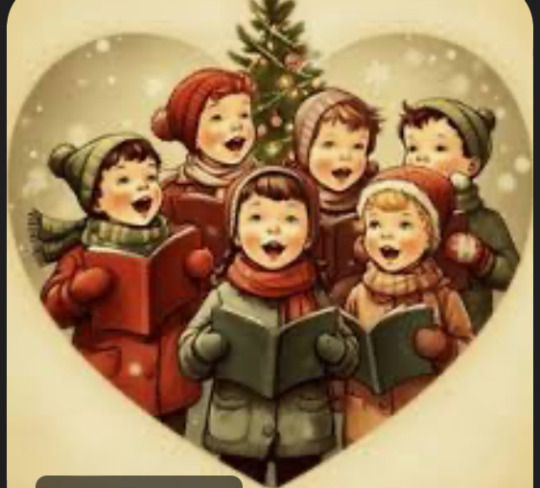
#paganism#christmas#yuletide#witchcraft#xmas carols#witchblr#traditional christmas#the holly and the ivy#modern paganism
4 notes
·
View notes
Text
The wolf of Mars
After asking about Mars and wolves and getting inspired to look around I'm just going to go all on in here on the subject just like on Twitter because by gods the more I think about the subject the more I love it.
Mars apparently was frequently accompanied by wolves, and not just because his offspring were raised by a wolf. Livy apparently described a statue of Mars on the Appian Way in which Mars was accompanied by wolves. Livy also, in The History of Rome, recounted a story where a wolf appeared as a reminder of Mars as the founder of the Roman people and an omen of their good fortune. In Rome there was also a "lupus martius", or "wolf of Mars", that was believed by Romans to be an omen of victory in battle. There is also Roman iconography featuring Mars mounted upon a wolf, or being carried on a chariot driven by wolves. See example from the 2nd century below:
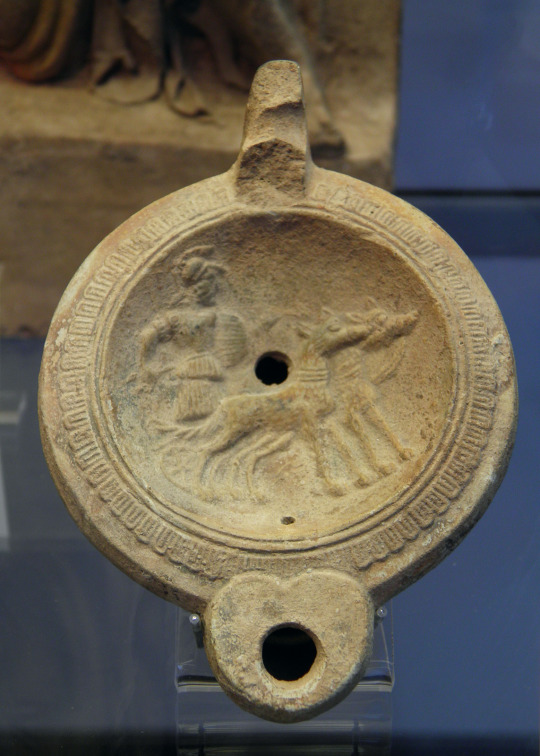
This motif appears to have carried on in later depictions of Mars from well after the Christianisation of Rome and much the European continent. An example here would be "Mars on his chariot pulled by wolves", painted by Claude Audran the Younger in 1673.
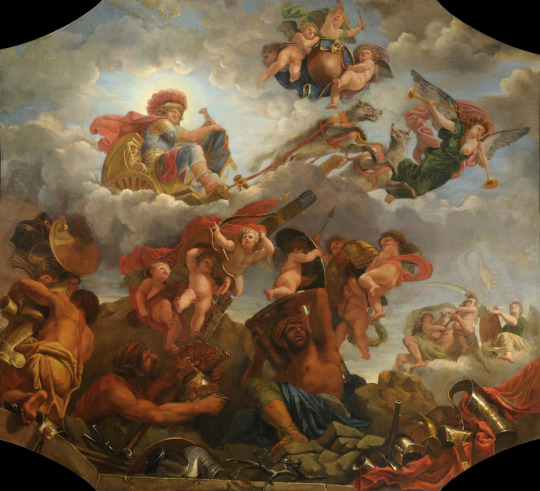
Wolves were most definitely the sacred animal of Mars, a connection that is perhaps not entirely separate from the founding myth of Rome, where the sons of Mars are raised by a she-wolf.
I also cannot help but interpret resonances with a broader chthonic context relevant to the larger culture of ancient Italy. Mars, on his own, has his own chthonic context, in that he was regarded not just as a god of war but also of fertility and agriculture, patron of the virtus of the earth. He can also be seen as a descendant of similar Etruscan deities, such as Maris, who were chthonic and vegetative in nature. This link is discussed further in The Issue of Descent of the Deity Mars by Ekaterine Kobakhidze.
More importantly, in Etruscan culture, wolves were inherently chthonic symbols. They were believed to be liminal beings that could pass between presence in this world and in the underworld. Wolves were often seen by the ancient Etruscans as either demons or the spirits of the dead, or perhaps even as representing death itself. Etruscan gods of the underworld, such as Calu, Suri, and Aita, were also strongly identified with wolves. Aita himself, a god very similar to the Greek god Hades, is distinguished by his wearing of a wolf skin cap.
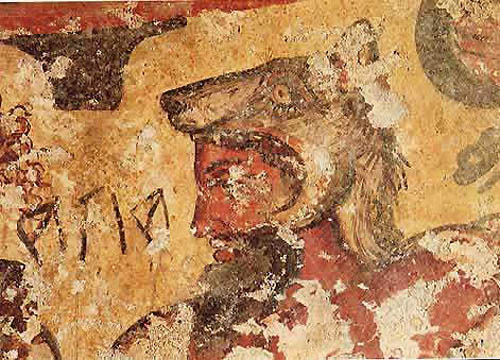
There may also be certain reflections of this association in ancient Greece. The goddess Athena, for instance is sometimes depicted wearing a wolf cap, such as in statues of Athena Albani. This wolfskin cap itself is traditionally worn by none other than Hades, and the Illiad refers to Athena wearing this "cap of Hades" to avoid being seen by Ares. Wolves were also strongly associated with Apollo, and the heads of wolves also featured in necromantic rituals aimed at invocation. To quote Greek and Roman Necromancy by Daniel Ogden:
Greek language lychomancy recipes borrow necromantic procedures. In one, the lamp is set on the (disembodied?) head of a wolf. Chthonic demons are summoned, and Hades is invoked. There are libations of wine, honey, milk, and rainwater, and offerings of flat and round cakes.
Not forgetting about Lupercalia, that Roman festival which revolved around the veneration of a wolf deity, Lupercus, possibly linked to Pan, Faunus, or Apollo, and celebrating the ritual purity of the community by way of the passage of ancestral spirits through the underworld.
The warrior association also invites consideration of the wolves with the bands of warriors academically referred to as "Koryos" or "Mannerbund". In Greece, for instance, adolescent war bands honoured Apollo as the master of the wolves that symbolised their fighting style. The Norse Ulfhednar, who saw themselves as shapeshifting into wolves, are often counted as another example of a similar war band. In Russia, on the steppes at what is now Krasnosamarskoe, there were midwinter rituals where people consumed the flesh of dogs or wolves to become dog-like or wolf-like themselves.
It's kind of difficult to imagine how it all leads together outside of pure UPG. I just happen find whatever thread runs between the wolf symbolism of Mars to be fascinating, though I can see how it mostly just connects to the founding myth of Rome.
#wolves#mars#roman polytheism#etruscan polytheism#hellenic polytheism#ancient greece#italy#chthonicism#chthonic gods#warrior gods#ancient rome#roman mythology#greek mythology#paganism#chthonic#war gods
54 notes
·
View notes
Text
Wheel of the Year: Yule
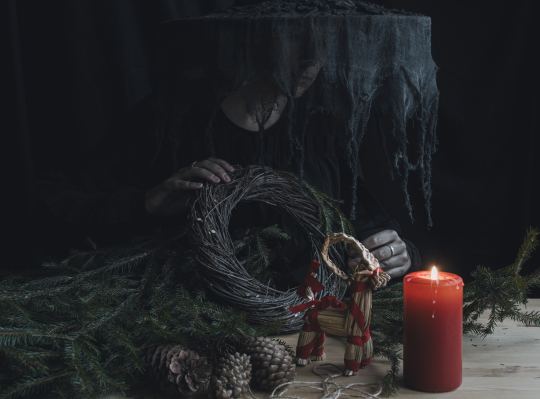
Photo by Ksenia Yakovleva on Unsplash ☽🔮☾🕯🃏🌕🕸✨🍃🍄🧿🌙✩ 🪄📚
Yuletide, Yule, Christmas… one of the biggest festivals in the wheel of the year and definitely one of the most popular ones, as it got adapted into Christianity and popularized as the "day of the birth of Christ". It is now known, observed and celebrated all over the world, be the country Christian or not. Even if Christmas is celebrated the 25th of December, Yule os more commonly celebrated between the 21st and the 23rd December on the North Hemisphere and between the 21st and the 23rd of June in the Southern Hemiphere.
Yule comes right after Samhain and before Imbolc. While pagan in origin, Christianity took from it, adapted it and turned into the majour festival of this religion.This is also one of the easiest to celebrate big time without needing to come out of the broom closet: a lot of the imagery of Christmas actually mirrors that from Yule, in fact.
Yule is the celebration of the winter solstice. Yule celebrates midwinter, and the longest night of the year. What this signifies is that the reign of darkness is over, the tipping point has been passed, and the reign of light is coming back. From now on, days are becoming warmer and warmer, sunnier and sunnier and life will start to come back to Earth, as winter winds down.
We don't know exactly where the origin of the word "yule" comes from, but it is suspected it might come from Old Norse, the word “jól", which meant a celebratory feast. The festival also has ties to Germanic and Scandinavian gods such as Odin, and it also played a part on their folklore.
Yule is a time for rejoicing. It mainly celebrates letting go of the old, accounting for the past year, cleaning house and making room for the new, shiny coming things. It's a time for rebirth, new beginnings and hope. It is also a time for reflection and introspection, to make sure not to repeat the same mistakes of the past year, and to try to steer ourselves in the good direction. It is also a time to chase away the darkness through joy and merriment: ignoring that the harvests have ended and our reserves are almost empty, let's celebrate and make merry for the good times are coming soon!
It doesn't matter where you live: Christmas, and therefore Yule, has become so popularized and commercialized that you probably can celebrate it inside your home and outside the house for the entire month of December. In most countries of the world illuminations, jingles, people dressed up as something or other and all sorts of shiny decorations will help you get in the holiday spirit. This is also one of the strong suits of Yule: you can still celebrate as much as you want, deck the halls and get into the holiday spirit… while still being extremely subtle about the fact that you practice witchcraft !
If you'd like to celebrate Yule, here you have a short list of options available to you. Some might be more adecuate to solitary practice, others might be best if you are part of a coven.Some allow you to get all materialistic about it, while others will help you keep in touch with the more traditional, raw side of the festival. Whichever you choose, make sure to enjoy yourself and look forward to the hope and hapiness this event brings us !
-Candles: Ever wondered why candles feature so prominently in Christmas decor ? Well, it's part of an old tradition where candles and fires were lit for Yule, both to light up the longest, darkest night of the year and to honour the Sun and call it home. Both candles and fire are incredibly popular motifs for Yule and many traditions include them, so if you can, light some: battery candles will do as well !
-Decorate: It's pretty evident that decorating is also a big theme in Yule. Christmas has become extremely commercial and big, lavish, expensive decorations have become the go-to; but just like with all the other festivals you don't need to break the bank to bring that holiday spirit home. Buying commercial decorations is not the only way to deck the halls: crafting your own, or collecting seasonal items such as pinecones, holly or mistletoe from nature are all fantastic options. Just make sure you are not damaging any plants or taking any protected species (holly is endangered in many countries) and you are golden !
-Crafting: Yule celebrates the longest night of the year, which means up until then the hours of night, of dark and of cold have been too long to go outside. This makes Yule a great festival to sit by the bonfire (or by candlelight) crafting decorations. Sew, crochet, felt, draw or create in any way that pleases you both to decorate your house and to offer gifts to your loved ones. I would recommend creating an evergreen wreath: they are so simple to make and so elegant !
-Bake: Like I mentioned just before, the days before Yule are too dark and cold to be out of the house much. The harvest season has also ended, so fresh ingredients are lacking: baking with dry ingredients such as flour served a double purpose back in the day (cleaning up the pantry from non-perishables that would sustain you through winter and starting the oven that would light up the entire house). Cookies and biscuits are traditional, but so are breads, pies, cakes, pizza… highly caloric, sugary food is favoured as well: you need to put on some weight to be able to deal with the freezing winter temperatures!
-Feast: "Feast", "festival"… close enough. You can't have a festival without feasting, and what are you going to do, not eat all those delicious cookies you just baked ? To really honour the season and bring some good luck and prosperity your way, make sure to share that feast with your loved ones or to do some charity !
-Share: While Christianity and Christmas might have popularized the "charity" aspect of Yule, it was always important to share during this season: those neighbours that weren't as fortunate in the past year might be running low on supplies and ingredients. Therefore, sharing is extremely important during Yule if you have extra, no matter what shape it takes: share your abundance by inviting your loved ones to a feast, give lovely gifts to those around you, share your time and joy by volunteering at a soup kitchen…
-Divination: Yule is close enough to the end of the year that you might be wondering what it has in store for you. Using a pendulum, scrying, tarot, tasseomancy… any way is good to discover what the future might hold and to look forward to it.
-Deep cleansing: Yule is a moment of saying goodbye to the past and honouring rebirth and new beginnings, so it is a particularly auspicious moment to make inventory, clean house and make room for the new and coming. This might be more metaphorical (looking back in the past year and letting go of what didn't serve you) or more physical, like really cleaning your house. Cleanse yourself and your house and don't forget to protect yourself to keep the wacky energies at bay.
-Shadow work: Yule is a particularly good moment for self reflection, for looking into the past and for being honest with ourselves. Shadow work will help you come to terms with the most painful parts of your past and of yourself, make a clean break with them and, if you can't let them go, make strides to integrate them into yourself and to start the healing process.
-Honouring: Yule marks the day where the Sun, the brightness and the warmth start to return to us. It would be a good moment to honour the Sun, honour your deities, honour yourself and everything and all that have allowed you to come to this place. Meditation, self reflection, gratefulness, offerings to your deities… all things that help you feel connected to yourself and the world, and everything that makes you feel grateful and hopeful for the future, works here.
-Decorate your altar: We can't have a festival without decorating your altar ! Add colours, motifs and themes that remind you of the season to your altar. It's also a good option to add offerings to any deities you might work with.
Colours associated with Yule: White, black, red, green, silver, gold Crystals associated with Yule: Black obsidian, red jasper, carnelian, calcite, sunstone Food associated with Yule: Apples, spices, wine and alcoholic beverages, baked items, meat, berries, sweets
I hope you have enjoyed this post. If you would like me to continue making posts like this please support me so I can continue making them: you can support me by donating here https://ko-fi.com/bunnymatchamochi or by visiting my Etsy store here: https://www.etsy.com/shop/LovenestAtelier?ref=profile_header Reblogs and likes also help ! Thank you so much for reading me !
8 notes
·
View notes
Text
Io, Saturnalia! (Starting on Dec 16 or 17)
youtube
#io saturnalia#baby witch#hellenic deities#hellenic gods#hellenic polytheistic#hellenic witch#hellenistic pagan#festiveseason#celebrations#Youtube#Spotify
6 notes
·
View notes
Text
Letter from Josephine to Eugène
Translated from “Les Beauharnais et l’empereur”, edited and published by Jean Hanoteau, containing letters written by Josephine and Hortense to Eugène while the latter was in Italy. This is in fact the very first of those letters.
Plombières, 18 Thermidor [an XIII = August 6, 1805]
No, my dear Eugene, I have not forgotten you [...]
Should be the standard introduction for any of Josephine's letters, considering how long it took her to write.
[...] for I am constantly occupied with you, with what you are doing, with your pleasures, but above all with your sorrows, and I assure you that when I learn that you are suffering some vexation, I am more affected than you are. The Emperor always seemed to me to be pleased with you; he was only a little annoyed that you had sent for a man who had made false statements. He said - and rightly so - that you should have had him reprimanded by the Minister of Police and that it was not in keeping with your dignity to have him come to you. But he said that this was coming from a young man and a young man with honour. It would be curious to know from whom he heard this.
Fortunately, Her Majesty's curiosity can easily be satisfied: The guy chatting so unwisely was a certain Prince Eugène, Viceroy of Italy, who still believed he had to dutifully account to his stepfather for every move he made. But he will soon receive a letter from Duroc with some advice between the lines: Just don't tell him everything, dimwit.
Besides, he knows your devotion to him and your attachment to him and he loves you dearly. The same is not true of his family. They saw with the greatest sorrow your nomination. Murat always plays the courtier. His wife has been ill. It seems so, because she is quite changed. She has retained that air which she calls dignity (which I call composure) which does not suit her at all. It's wrong for all these people not to like us. If they wanted to be good people, they could not have better friends than us.
Sounds like all bridges have already been burned between the Beauharnais and the Murat side of the family. Unfortunately, we do not get to know what "playing the courtier" means and if it is related to the "Duchatel" affair that allegedly caused Eugène some brief disgrace. Josephine does sound somewhat jealous of Murat's influence in these letters.
The Emperor is always very kind to me. I also do whatever it depends on me to do to please him. No more jealousy, my dear Eugene, and what I am saying to you is quite true. This way, he is happier and I am happier. I cannot tell you anything about the political news, it is a mystery which the Emperor never lets you in on. He is at this moment in Boulogne. All I know is that he has been waiting for eight days for a letter which was to decide his departure. You probably know that the Prince of Baden's marriage has fallen through, which gives great hope for the person you know.
Yes, that person would be a certain princesse Auguste. Though, in her opinion (and in that of the whole Bavarian court) the marriage to Karl von Baden was still happening. Of course it would be happening!
I have seen her portrait. She is as beautiful as can be. Your sister is well, as are the children. I had the second child with me at Saint-Cloud, and he is very beautiful. Louis is still in the same state. I am looking forward, my dear Eugène, to midwinter. That is the time when you promised to come and see me. How happy your mother will be! You will know, my dear son, that I grieve every day at being separated from you and that my eyes are always filled with tears whenever I think of you or am spoken to about you. If I have not written to you since my arrival, it is because I have been very tired and tormented by visits. Besides, there was nothing new; I shall write to you every week from now on.
Eugène: Sure, mum... (It took her another month until she sent of her next letter.)
I have agreed with Lavallette to send him my letters. Goodbye, my good Eugene, the most tender of sons. Your mother embraces you with all her heart and loves you madly.
A thousand kind things to Mme Litta and Méjan.
32 notes
·
View notes
Text
24th December
Christmas Eve

Source: The Book of Christmas, The Enchanted World, Time-Life Books
Today is Christmas Eve and a night of ghosts and spirits. Like Halloween, malevolent phantoms are said to roam the mortal world on Christmas Eve and the evil alter ego of St Nicholas, the monstrous Krampus, will weave spells of dark winter magic to entrap those who do not give the eve of Christ’s birthday due respect. More benignly, the ancestral dead are said to revisit the hearths of their loved ones tonight and make merry once more. Before retiring to bed, the people of northern Britain would leave a Christmas repast for their deceased forebears to help them enjoy their ghostly seasonal revels. At Rainham in Kent a coach with a headless horse is said to gallop towards Bloor’s Place tonight, allegedly carrying the ghost of a notorious womaniser known as Christopher Bloor who was waylaid and murdered by cuckolded husbands who chopped off his head, although, confusingly, not that of his horse.
Tonight the Ash Faggot or Yule Log was brought into the homes of the Anglo Saxons and the Scandinavian settlers of the Danelaw. The Log had to be found in woodland and dragged back to the family hearth, where it was sprinkled with ale or cider before being thrown onto the fire where it was intended to burn the whole Yuletide through. The pagan origins of seeking divine light in the midwinter darkness of this practice are clear enough. Its possibly more bloody origins are hinted at by the sketching of a human figure into the bark in Cornwall and the fact the Log was known as The Christmas Old Wife, indicating the festive log may be a symbol of abandoned midwinter human sacrifice.
Christian legend has it that tonight cattle kneel and sheep face east towards Bethlehem in honour of Jesus’ birth; for the duration of the night all farmyard animals can talk, but to overhear their conversation brings terrible luck in the New Year - something to dissuade the curious from disproving the legend and destroying some Christmas magic. It was a tradition to feed all the livestock well and generously over the Christmas season: birds in particular were given a special cake of fat and grain known as the Christmas Sheaf.
#christmas eve#christmas#christmas ghosts#yuletide#Yule log#ash faggot#talking animals#Christmas sheaf#krampus#bloor’s place#the Christmas old wife
4 notes
·
View notes
Text
desire
I saw a robin today. the sun was out, and so were the birds. jackdaws. blackbirds. blue tits. others. but robins too.
he pecked at the crumbs around my shoes and my thoughts returned to December, when I would hang his likeness in my home, on a card, and sing songs in his honour. but now it is April and he is a stranger at my feet.
robins are sedentary birds; all weather friends. we venerate them in winter, not because they are anything more, still the same small ball of feathers, curios and brave, but because our options are less. the other birds fly south, and we turn, lonely, to the redbreast in the snow.
the trees are the same, but green against that white. evergreen. spruces and firs and pines each just as lush in summer heat, but unappreciated, unremarkable; until the others are gone. we bring them into our homes, draped in baubles and tinsel and lights for their company, their rich, winter beauty, which doesn't earn a second glance in spring. in April, the other trees have blossom. flowers. decoration of their own.
this is what I am to you, I think. a December comfort. you turn to me when others fade, a hearth to warm the bleak midwinter of your heart. you kindle me to fill that void, adorn me with desperate love, hold me up as more than the simple person underneath. so that, come the warm light of spring, when the air is filled with petals and birdsong, I can only disappoint. in a world of options, I am easy to discard, less visible in sunshine than in shadow, though standing by you just the same. but your loneliness is gone, and mine can wait until that winter next returns, and I might be worthwhile wanting once again.
I am used to shivering in the warm.
3 notes
·
View notes
Text
A more bawdy festival featuring women's feasting was the Haloa, an all-night midwinter festival honouring Demeter and Dionysus. At Eleusis, the archons provided the celebrant women with wine and foodstuffs, which included dough shaped like genitals, and the women feasted together within the sanctuary, supposedly telling ribald jokes to one another, while the men stayed outside. Celebrant women seem to have been expected to make contributions toward this feast also, as suggested in Lucian Dial. Meret. 7.4, where a mother asks her daughter what her male lover has given her for the Haloa feast.
Women's Commensality In The Ancient Greek World by Joan Burton
18 notes
·
View notes